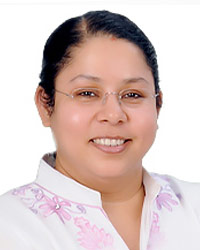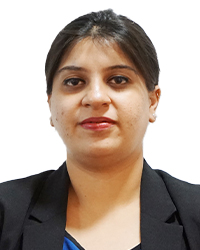In the case of Ovid Therapeutics, Inc v Assistant Controller of Patents and Designs, Delhi High Court held that a patent application was ineligible for a grant because the scope of the claims within it had been expanded. There was also insufficient data to demonstrate a significant enhancement of therapeutic efficacy for the product.
A national phase application, “Methods of increasing tonic inhibition and treating secondary insomnia” was filed following a PCT application claiming priority from a US patent application. The national phase patent application was filed with 28 claims asserting that it was “a method of increasing tonic inhibition of neurons in a subject comprising administering to a human subject with a neurodegenerative disease, a neurogenetic disorder, or a central nervous system disorder” and setting out details of its composition.

Partner
LexOrbis
After the filing of the patent application, the Indian Patent Office issued a first examination report that raised objections about the lack of novelty and inventive steps and non-patentability under sections 3(i) and 3(e) of the Indian Patents Act, 1970 (act). The patent office also raised an objection over the insufficiency of disclosure and definitiveness. The applicant then amended the claims, limiting them to a recital of a composition with a specific range of the claimed compound. The patent office issued a hearing notice, eliciting a reply from the applicant that explained the daily dosing and extended improvement of the composition. A declaration by the inventor was submitted to establish the synergistic effect of the ingredients in the composition.
However, the patent application was refused by the Controller of Patents, Designs and Trade Marks on the grounds of non-patentability under section 3(d), which deals with new forms of a known substance without any enhancement of it, and section 3(e) that excludes a mere admixture. The controller also objected to the lack of an inventive step under section 2(1)(ja), the insufficiency of disclosure and the broadening of the scope of claims in breach of section 59 of the act. The applicant appealed.
The issues before the court were whether the amended claims were within the scope of the original claims and whether the claimed composition resulted in enhanced therapeutic efficacy. The court held that while the first original claim was worded as a method, it was a composition claim. Further, the limitation in an original claim regarding the neurodegenerative disease did not exist in the amended claim. The amended first claim disclaimed the earlier broadly claimed feature and also defined the composition quantities. Accordingly, the court held that the amended claim was not within the scope of the originally filed claims as the limitation relating to a specific class of diseases had been removed.

Managing associate
LexOrbis
Further, it was also held that the composition claimed in the amended claim was derivative and a mere known substance under section 3(d) of the act with no significant enhancement of therapeutic efficacy demonstrated. The court held that although the applicant relied on a press release for a phase two STARS trial of the composition, which was freely accessible, the results of phase 3 trials available to the applicant had not been placed on record. Such results were necessary to determine the efficacy of the composition. In fact, the publicly available results of the phase 3 trials showed that the composition for which the patent was sought lacked therapeutic efficacy. Therefore, the court held that there was insufficient data to demonstrate a significant enhancement of therapeutic efficacy.
In this case, the court held that the application was not eligible for the grant of a patent because of the expansion of the scope of the claims and the absence of sufficient data to demonstrate significant enhancement of therapeutic efficacy as required under section 3(d). The complete specification of the compound should contain the requisite data or references demonstrating the enhancement of efficacy of the subject invention for which a patent is sought if it falls under section 3(d). Additional data, such as that collected from clinical trials, which becomes available only after the filing of the patent application, should be produced by the applicant and may be considered by the patent office as well as the court.
Manisha Singh is a partner and Vaneet Kaur is a managing associate at LexOrbis.

709/710 Tolstoy House
15-17 Tolstoy Marg
New Delhi – 110 001
India
www.lexorbis.com
Mumbai | Bengaluru
Contact details:
T: +91 11 2371 6565
E: mail@lexorbis.com




























